Woman Demands Dog Back Five Months After Gifting Him To Friend, They Aren’t Letting Go Without Fight
Let me tell you a bit about our narrator’s (Original Poster’s) dear friend Rachel. Rachel was in a pretty rough spot—stuck in a domestic violence situation with her kids.
When she finally made the brave decision to leave, she took her kids and her dog, Buster, and moved in with a family member. Unfortunately, about a month later, she received an ultimatum: either Buster had to go, or they all did.
Desperate and with nowhere else to turn, Rachel started asking around if someone could hold Buster until she found a place of her own. That’s where OP came in.
Three months ago, OP took Buster in, and it turned out to be the best decision they’d ever made. The kids loved him, and he fit snugly into the family.
Imagine OP’s shock when Rachel asked them to keep Buster permanently just two months into their arrangement—their excitement was through the roof! OP agreed, and just like that, he became their family dog. Their son and Buster? Best buds. They were practically inseparable.
Fast forward to this week. Rachel finally landed an apartment and suddenly asked for Buster back. It had been five months since Buster joined OP’s family, and they were all deeply attached to him. I mean, how could they not be?
Oh, but there’s more. Rachel’s abusive ex was threatening to sue her if she didn’t bring Buster back. He had a history of mistreating Buster, and OP wasn’t going to let their beloved dog end up back in such a situation.
Legally, Rachel didn’t have much ground to stand on. Was OP the AH for not wanting to give Buster back?
Let’s dig into the details

OP talks about a lady (Rachel) who needed help providing a place for her dog (Buster) to stay.
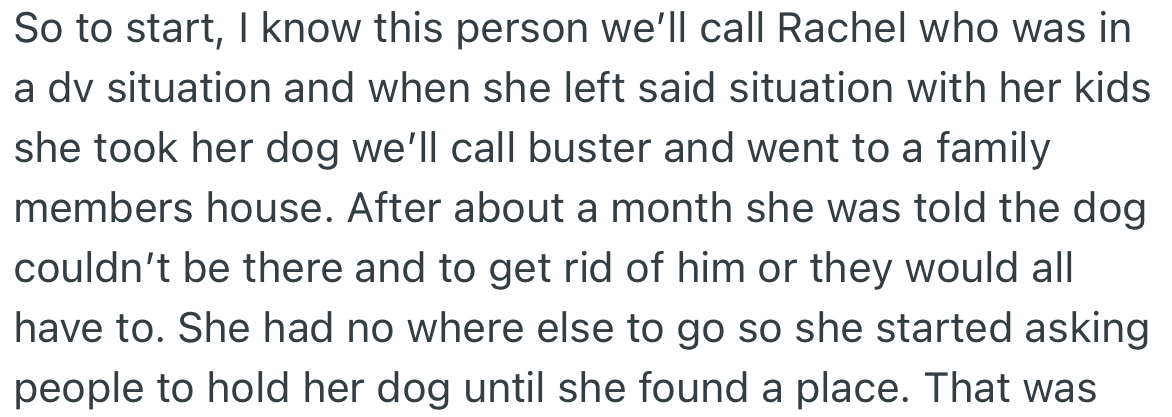
Ownership and Attachment in Relationships
Dr. Rachel Kim, a developmental psychologist at the University of Virginia, emphasizes that the concept of ownership can significantly influence interpersonal relationships. When individuals gift pets, it often creates a bond that complicates future decisions about the animal. Her research indicates that attachment theory plays a vital role in how individuals perceive their connections to pets, leading to feelings of possessiveness.
This attachment can create emotional turmoil when the relationship dynamics change, as seen in the case of the woman wanting her dog back.
OP took in Buster, who became friendly with her kids. A few months in, Rachel tells OP to keep Buster until he passes away.

Rachel got an apartment and requested the dog back.
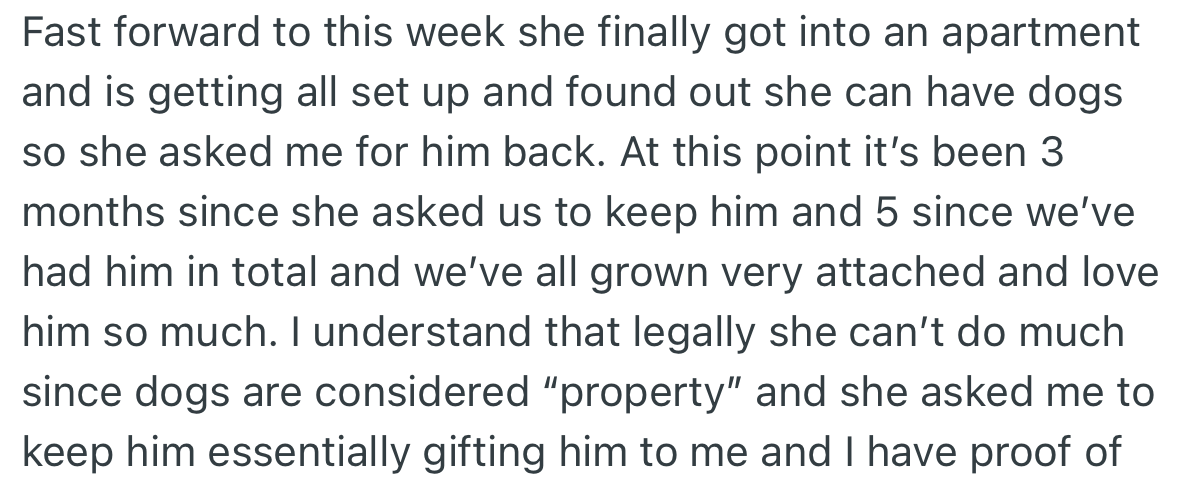
Studies show that attachment styles can profoundly affect how individuals navigate relationships. A psychologist specializing in attachment theory notes that those with insecure attachment may struggle with feelings of loss and abandonment, often leading to conflicts around shared ownership. This illustrates how individual psychological profiles can shape responses to shared responsibilities.
OP is concerned that returning Buster will put him in danger and jeopardize his safety.

Check out some interesting comments below:

The Emotional Impact of Pet Ownership
Pet ownership can evoke intense emotions, as animals often serve as sources of companionship and comfort. Research in the Journal of Applied Animal Welfare Science highlights that pets can provide significant emotional support, making the bond between owner and pet deeper than simple ownership. When ownership is challenged, it can lead to feelings of betrayal and grief.
This emotional attachment complicates the situation, making it difficult for individuals to navigate disputes over pets calmly.
“If she was in a DV situation, then he should not be contacting her anymore. She can stop him from contacting her.”
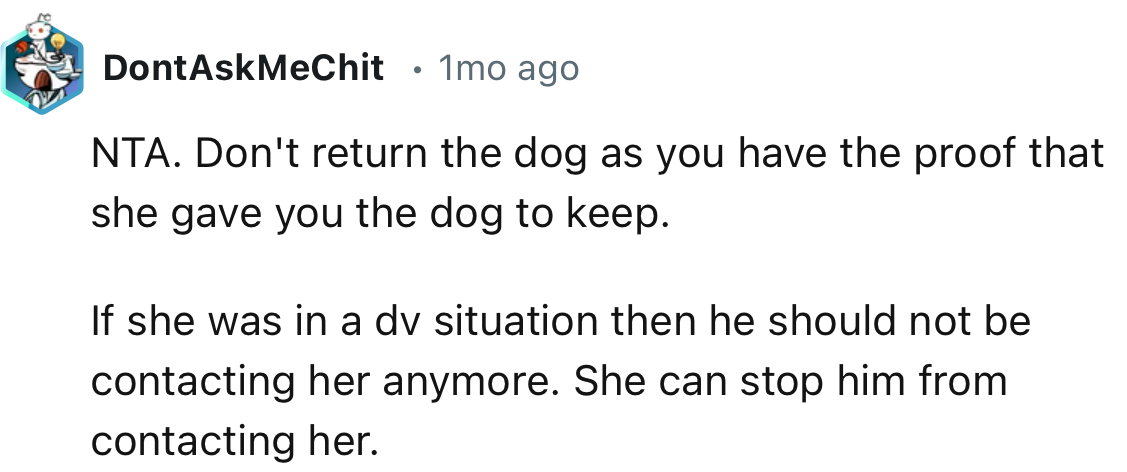
“She’s not fit to own a dog. Her life is not stable, and elderly dogs require a bit more care and attention.”
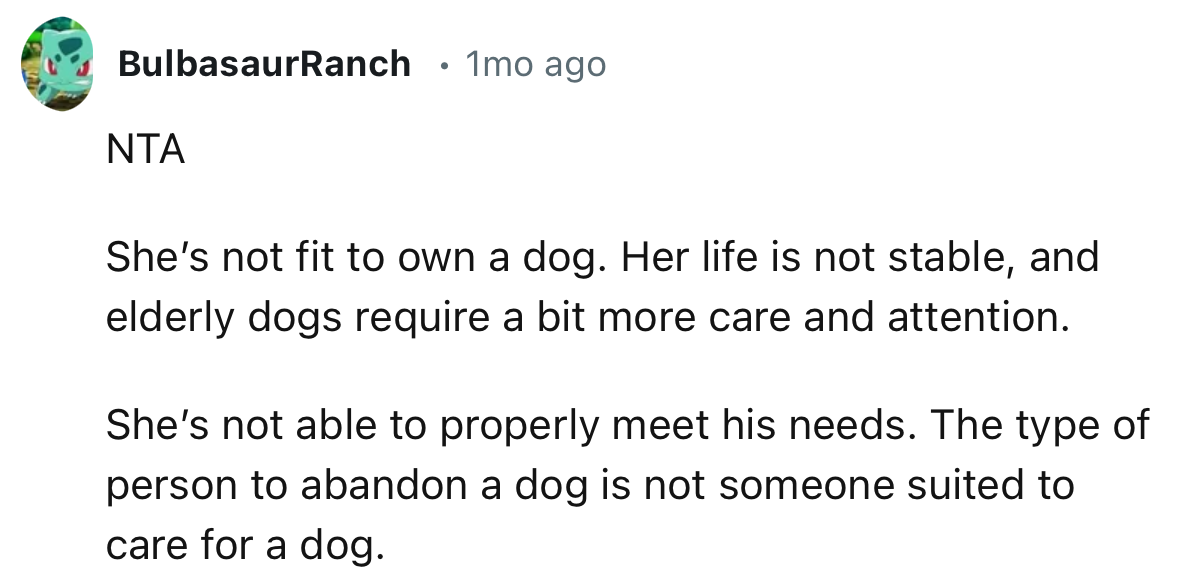
Additionally, understanding the psychology behind possessiveness can help individuals navigate conflicts more effectively. A clinical psychologist suggests that recognizing the underlying fears associated with losing a pet can aid in addressing the emotional responses involved. This awareness can foster empathy and pave the way for more constructive conversations about shared responsibilities.
“This was just a big story in our local newspaper, exactly like this down to the details.”

“Please do not give her back this dog.”

Redditors unanimously agreed that OP wasn’t the jerk in this situation. Rachel's unstable situation and her ex’s threats make her unfit to care for an elderly, previously abused dog.
Buster deserves a stable, loving home, and OP has provided that. The consensus? Protect him and keep him safe.
“She's shown that she can be manipulated by her ex; therefore, the dog is much safer with you.”
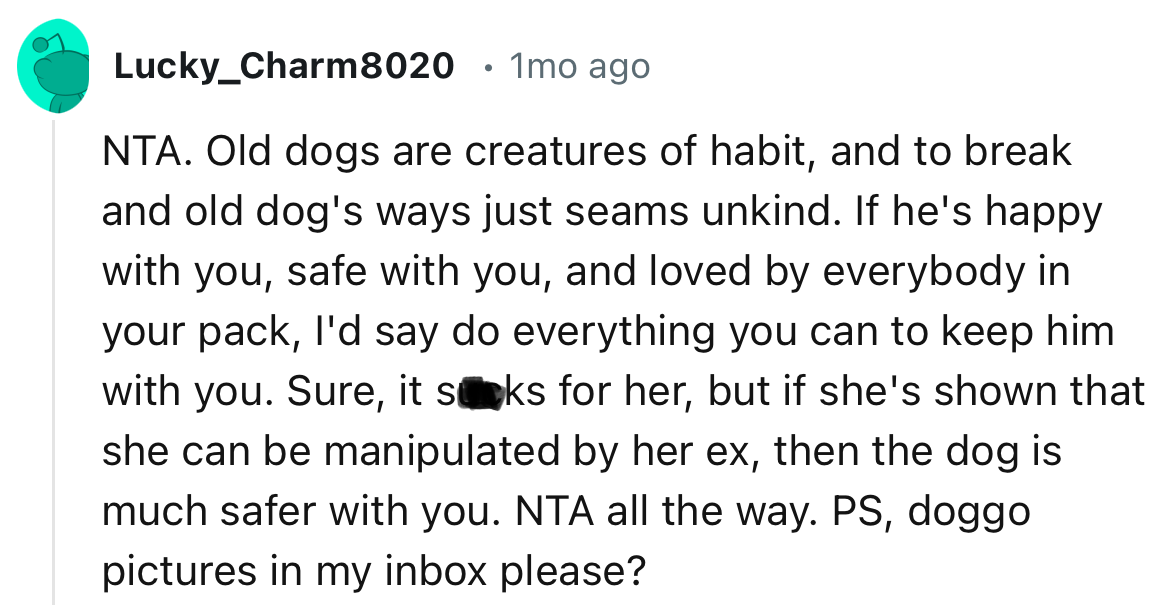
“This situation requires legal advice, not moral judgment.”
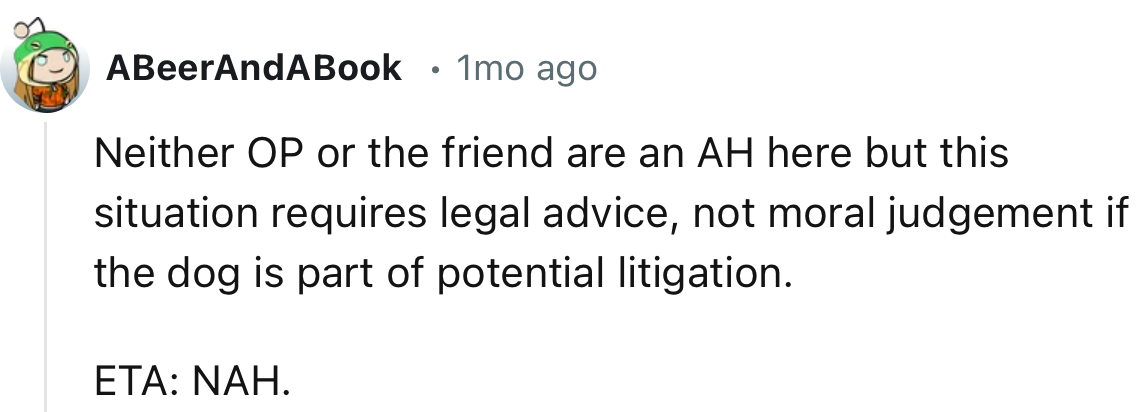
Strategies for Resolving Ownership Conflicts
To resolve conflicts around pet ownership, open dialogue is essential. Experts recommend having candid discussions about feelings and expectations regarding the pet, which can help clarify the emotional stakes involved. Establishing a written agreement about responsibilities and ownership can also serve as a helpful reference point for both parties.
Additionally, engaging in mediation can provide a neutral space for both individuals to express their feelings and reach a compromise.
“Try to talk to her about the situation. That your children love the dog and you don't want to give the dog away.”
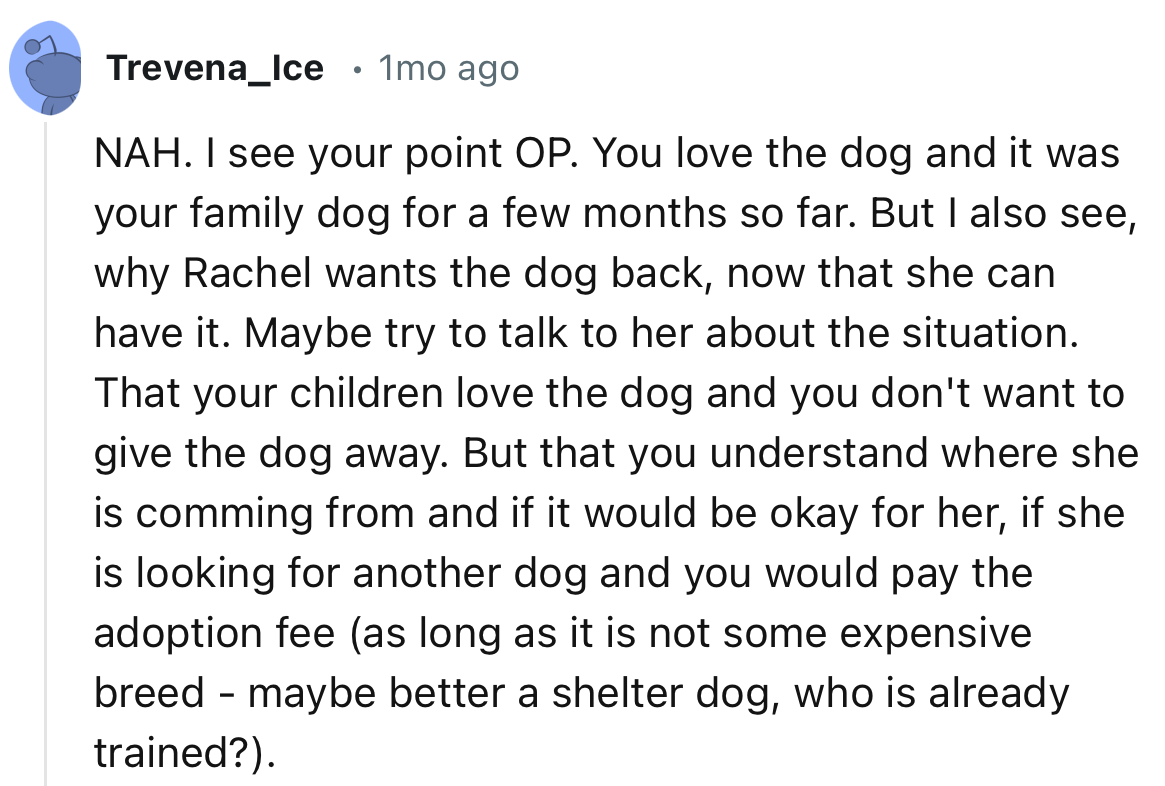
Psychological Analysis
This situation underscores the complexities associated with pet ownership and attachment. When ownership dynamics shift, it can evoke strong emotions tied to loss and possessiveness. Open communication and empathy are crucial in navigating these challenges effectively.
Analysis generated by AI
Analysis & Alternative Approaches
Navigating conflicts over pet ownership requires a blend of emotional understanding and clear communication. Research indicates that addressing the underlying emotional attachments can help individuals find common ground. By fostering open dialogue and empathy, parties can work towards a resolution that honors the bond they share with the pet.



